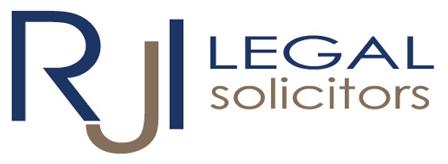If you’re considering a new venture, expanding an existing enterprise, or entering a new market, buying an established business may be an attractive option. While it offers several advantages over starting from scratch, there are also risks. Carefully weighing the pros and cons – and conducting thorough due diligence – essential for making an informed decision. An experienced lawyer can assist with navigating the legal complexities involved in the process.
Advantages & Disadvantages
Buying an established small business offers several advantages. First and foremost, you will usually inherit an existing customer base, which can provide immediate cash flow and revenue. This can save you the time and effort required to build a customer base from scratch. Additionally, an established business often has existing relationships with suppliers, distributors, and other stakeholders, providing you with a head start in identifying key resources and entering the market. Brand recognition and goodwill associated with an existing business can also help you establish credibility in the industry.
On the other hand, starting your own business allows for greater control and flexibility. You can shape the business according to your vision and preferences without inheriting any existing issues or limitations. Starting from scratch also enables you to choose the location, design the infrastructure, and hire the team that aligns with your strategic objectives. However, building a new business requires substantial time and resources, and success is not guaranteed in the early stages.
Due Diligence
For an existing business, due diligence refers to the comprehensive investigation and analysis of the target business to assess its value, risks, and potential for growth. It encompasses investigating the four key areas: financial, legal, operational, and human resources of the proposed business.
Financial and Legal Due Diligence
Financial due diligence involves reviewing:
- Financial statements and tax returns
- Profit and loss records
- Cash flow and liabilities
- Business Activity Statements (BAS)
The goal is to verify the accuracy of financial records, assess profitability and uncover any hidden debts or liabilities.
Legal due diligence focuses on examining:
- Business structure and ownership;
- Contracts and agreements;
- Licenses, permits, and registrations;
- Compliance with relevant laws and regulations;
- Any pending or potential legal disputes.
It’s also crucial to examine the legal status of any intellectual property (trademarks, patents, copyrights) and whether it is properly registered and transferable.
Another key step is reviewing assignable contracts – including those with customers, suppliers, landlords, or franchisors. A buyer must understand existing obligations and whether third-party consent is required for contract transfer. Your solicitor can assist in reviewing these agreements and identifying clauses that may affect your post-acquisition rights and responsibilities.
Operational Due Diligence
Operational due diligence focuses on evaluating the internal workings of the business, including:
- Business systems and processes
- Technology infrastructure
- Inventory and supply chain arrangements
- Service delivery and fulfilment procedures
A lawyer can also help evaluate the transferability of licences and ensure the business complies with local council or regulatory requirements (especially in industries such as hospitality, childcare, or health services).
Human Resources & Employment Due Diligence
This step involves reviewing:
- Employment contracts and awards;
- Staff entitlements, superannuation, and payroll;
- Current staffing structure and roles;
- Workplace policies and compliance with the Fair Work Act 2009 (Cth) and NSW employment law.
Where employees will be transferred with the business, it’s important to understand whether they are covered by enterprise agreements or modern awards, and whether redundancies or restructuring may be required. Legal advice can help manage the transition and ensure the employment law aspects of the acquisition are handled correctly.
Conclusion
Whether buying an established business or starting from scratch, due diligence is a critical step in reducing risk and making a sound investment. By engaging qualified legal and financial professionals, you can ensure the business is viable, compliant, and well-suited to your goals.
This article provides general information only and does not constitute legal advice. For personalised guidance, please contact our office on (02) 9466 5189 or email [email protected].
